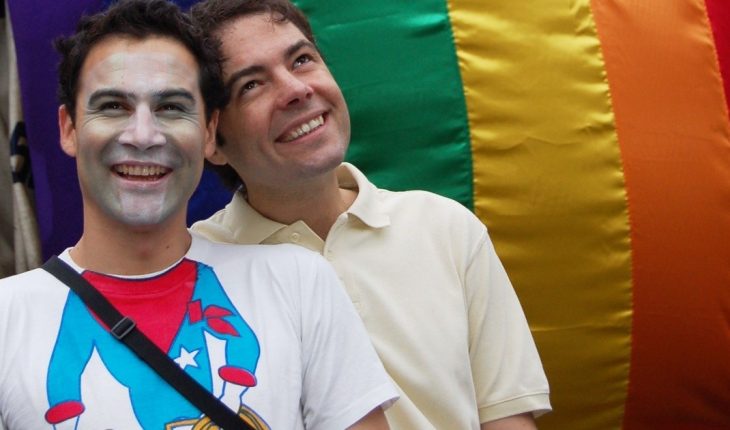In 2011, after the Marriage Equality Law was passed, Octavio Romero, the Prefecture’s 1st non-commissioned officer, was on his way to becoming the first gay officer in the country to marry. After having asked permission from his superiors – a request that was mandatory at the time – the 33-year-old man and his partner, Gabriel Pipín Gersbach, were to be able to marry after 12 years together. They had already chosen the venue for the party and invitations. Octavio had already asked for the groom’s hand and Gabriel told Filo.News: “By protocol I had to do the same with his mother from Curuzú Cuatiá, Corrientes.” But after telling his bosses that he was going to marry someone of his same sex Romero became the victim of multiple harassments, such as homoodiant graffiti in the bathroom, and threats in his workplace. Six months before the marriage, on June 11, 2011, Octavio disappears and six days later, on the 17th, his lifeless body appears naked, beaten and with 2.06 grams of alcohol in blood in the Río de la Plata, at the height of Vicente López, jurisdiction of the Argentine Naval Prefecture. He was murdered. The autopsy determined that he was thrown into the water already dead.
Gabriel and Octavio Romero: marriage equality that was not
The prefect had last been seen by his partner. Octavio studied Public Relations at the University of Salvador and that day he was going to meet friends from the faculty at a party in Parque Centenario but never reached his destination. “I remember that Saturday it was very cold and drizzled. I went to work with the taxi and in the middle of the night the girls call me and tell me that Octavio had never arrived and that he did not answer the phone so I went home, “recalled Gabriel in Filo.News and revealed that when he entered the Retiro apartment that both shared the television was on and the volume very high. All lights on and the door locked. The next day Gersbach went to Precinct 15 to make the report of the disappearance and met Octavio’s bosses who gave him a card and made themselves available. He and family, friends searched for him everywhere for five days. They pasted posters in the streets, summoned the mass media and even created a Facebook page. The judicial investigation was carried out by the Criminal Prosecutor’s Office no. 40, headed by Estela Andrades de Segura. Gabriel was questioned as a “passionate” culprit for two years. On the 17th while testifying before the police he learned from the images he saw on a television in the waiting room that his future spouse was dead. That marriage wasn’t going to be able to be. He was then the subject of several raids. So did his family. Not only did Octavio’s regulatory weapon vanish: the prefect’s chip and phone as well.
Octavio Romero the gay prefect who did not get married because he was murdered
Only in 2013, Pipín Gersbach managed to stop being suspected of killing her boyfriend and was able to become a prosecutor in a case that in ten years did not experience a single advance. During these years, the prosecutor received the testimonies of thirty-four witnesses, carried out raids in different buildings of the Argentine Naval Prefecture and analyzed the images of all the security cameras belonging to the Federal Police, the Metropolitan Police, individuals and different institutions, without obtaining results. “The case has been boxed in for at least 5 years. Justice was not done because they do not touch the security forces that are protected and it is important that this case is disseminated so that this type of discrimination is never repeated, to protect all the people of diverse sexuality that exist inside and outside the force,” Gabriel told this media under the hypothesis that more than one person from the Prefecture is involved in this homoodium crime. In 2015, an anonymous, double-sided 12-page report reached the hands of the prosecutor in the case and also a journalist. In its pages someone specifies the journey of Octavio Romero until his death. According to the defense lawyer – a member of the Civil Association for Equality and Justice – it appeared to be written by someone from within the force. Under the title “Operation Dignity ‘Oscar Costa'” (Oscar is Octavio’s middle name) the anonymous detailed that a group had kidnapped the uniformed man in a van at gunpoint with silencer. He had been drunk and tortured in a maneuver called a “dry submarine” and that, in addition, that operation had been filed on a hard disk in the Coast Guard Building. The case, which is still foundhe was admitted to the Inter-American Commission on Human Rights (IACHR), which is beginning to assess whether Argentina is responsible for violating human rights.





